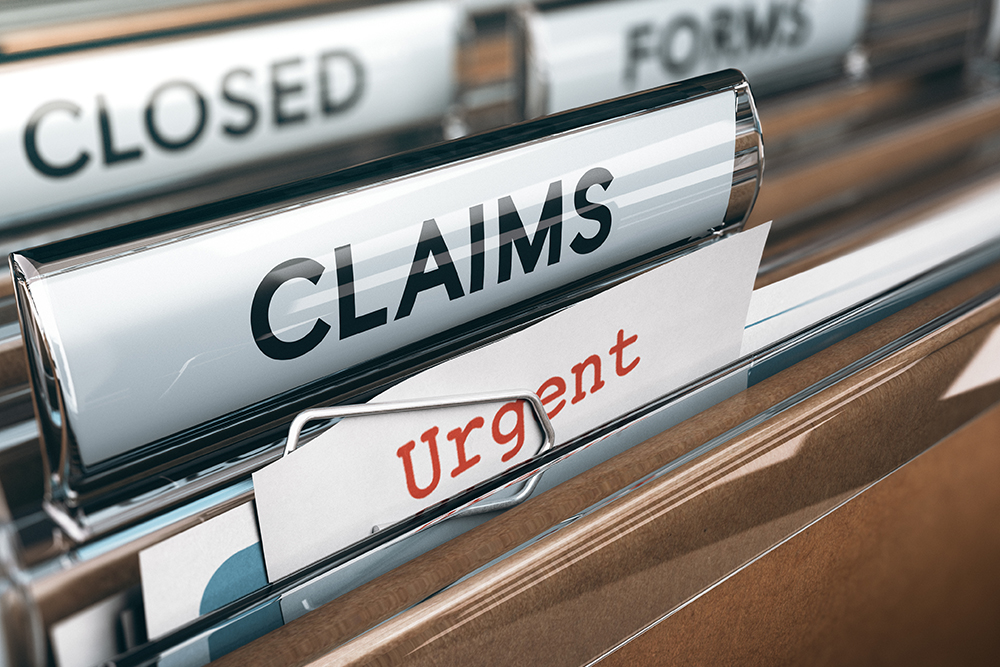
Navigating an insurance claim after a significant loss can be frustrating, costly, and time consuming. Associations have an obligation to cooperate with their insurance company fully and completely during the claims process even in the most daunting of circumstances. Failure to adhere to that duty may result in the denial of an insurance claim even in the face of a catastrophic loss.
It is therefore imperative that associations understand what the insurance company will require of them during the claims handling process, especially as we head towards the peak of hurricane season.
For starters, insurance companies impose a duty on associations to cooperate with the insurance company’s claims process. Failure to cooperate with an insurance company’s investigation of a claim could result in the issuance of a denial of a valid insurance claim.
That typically begs the question of what type of cooperation is required of an association during an insurance company’s investigation? Some examples of those conditions are as follows:
- Providing prompt notice to an insurance company of the loss.
- Providing the insurance company with the opportunity to inspect the loss.
- Providing the insurance company with photographs and videos of the loss as well as any receipts and documents evidencing the extent of the damage incurred.
- If requested, sitting for an examination under oath.
- If requested, providing a timely sworn proof of loss.
Your insurance policy may impose additional obligations. You should review your insurance policy before a claim is triggered. It is imperative that you review and understand the specific obligations imposed on you by your insurance company when making an insurance claim. If you do not understand what they are, then you should speak to a claims’ professional regarding the claims process.
The duty to cooperate with an insurance company’s investigation is intended to permit an insurance company to find out as much about the claim as possible to allow the insurance company to render a decision with the claim. If the association fails to cooperate with the insurance company’s investigation, then the insurance company may deny the claim even if the damages are clearly covered and catastrophic. And that means no money even in the face of what should be a covered catastrophic loss.
For example, providing prompt notice of a claim is of vital importance. There are a lot of cases in Florida where insureds’ made claims for property damage years after an event triggered a claim. Now there may be good reasons for the delay in submitting the claim, but the bigger point is simple. Do not delay in making a claim to your insurance company after a loss has incurred. If you wait too long, that delay in calling your insurance company may serve as grounds for the insurance company to deny your claim especially if you make the claim years after the date of loss. You do not want a valid claim potentially denied because of your inability to promptly notify the insurance company of the claim.
Also, you should allow your insurance company to inspect the property after you have reported a claim. The insurance company will need to see the alleged damage so they can assess and evaluate the nature, scope, and amount of damages. Again, failing to permit an insurance company access to the property in a timely manner, could be deemed a failure to cooperate which may result in the denial of a valid insurance claim.
Provide as much documentation about your claim to the insurance company as possible. For example, if the insurance company wants access to past board meeting minutes or financial reserve ledgers, then make sure that information is provided. If they want photographs or videos, make sure it is submitted.
An insurance company may also require that the association sit for an examination under oath (EUO) as part of the insurance company’s claims handling process.
An EUO is a sworn statement given by someone who has made a claim due to water damage, wind damage, hurricane, roof claim, lightening, or some other form of risk that is insured. Insurance companies typically use this procedure as part of their claims handling process and investigation. But they also employ an EUO if they suspect fraud, or if they are considering disputing coverage before going into litigation.
An EUO will certainly be transcribed and could even be video recorded. Whoever sits for an EUO will be sworn to tell the truth. The sworn testimony that is provided can be used by the insurance company to serve their interest, and against you, if possible. If an association fails to sit for an EUO after being requested to do so, the insurance company could deem that to be a breach of the cooperation clause found in the insurance policy. It is generally a good idea to have an attorney present during the EUO.
At the EUO, an insurance company is limited in scope to the types of questions that can be asked. Florida courts have admonished insurance companies when they have attempted to use an EUO to intimidate an insured. Again, having an attorney present may help minimize that risk of intimidation. Nonetheless, the insurance company will no doubt ask questions about your claim history (other insurance claims), and financial history. Most EUOs take several hours, and some could even take several days.
With all of that said, most insurance policies do not permit the filing of a lawsuit until the insurance company has been permitted to complete its investigation. However, some associations have been known to rush to court and file a lawsuit when the conditions precedent may not have been satisfied. Or the lawsuit may have been filed after a delay in notifying the insurance company of the loss and the insured otherwise failed to cooperate with the insurance company’s investigation.
Insurance companies typically attack those lawsuits on grounds that the insured association failed to follow the terms and conditions found in the insurance policy prior to filing the lawsuit. The insurance company argues that it was prejudiced by the association’s failure to adhere to its duty to cooperate to the point that the claim must be denied. While Florida law does permit the insured to rebut that alleged presumption of prejudice, the better practice is simply to fully cooperate with the insurance company prior to filing a lawsuit against your insurance company.
You do not want to be in court arguing technicalities contained in the insurance policy such as whether or not you fully cooperated with an insurance company’s investigation. You would much rather be arguing the nature of the actual loss after fully cooperating with the insurance company’s investigation.
Taking the wrong approach, or simply mishandling your potential insurance claim, could cost you a lot of money, time, and aggravation.
To aid you in advance of the claim process, here are some suggestions that you could implement today that will greatly assist you if you must make an insurance claim on a later date.
- Make sure to copy and safely store all pertinent documents. For instance, make sure you have a copy of all applicable insurance policies handy and that includes phone numbers and contact information to make a claim. You should maintain hard copies of these important documents in the event of a long-term power outage, but you should also store these documents digitally and off-site in a secure cloud environment. You should also safely store these documents in a manner that will allow you to gain quick access to them in the event of a catastrophe.
- You should also safely make the appropriate arrangements to have copies of the last four years of your budget, board meeting minutes, financial statements, and any additional information regarding any repairs made to the property safely secured. As part of the insurance company’s claims process, they will want to understand what the financial and physical condition of your association was like prior to the loss, and the aforementioned documents will be the best documents to tell that story. You will need physical copies of these documents should you not be able to gain access to them electronically.
- Make sure to take photographs and/or video of your property at the start of Hurricane season as this will help document the “before” aspect of any property damage claim stemming from a hurricane loss.
- Make sure to collect emergency contact information for all key staff members including your Board of Directors, President, Property Manager, and Attorney.
- Work to prepare a plan for a storm, fire, flood, or other emergency. What are the contingencies that will allow your association to return to normal as quickly as possible, and what are the variables that will prompt any long term issues? Who will be in charge of getting your network back up? Who will oversee the handling of the insurance claim? Assigning these responsibilities in a calm environment prior to an event that triggers an insurance claim will only aid the claims handling process.
- Consider having a licensed inspector or contractor to examine the roof, interior and other structural components before a hurricane. You do not want the insurance company to deny your claim by saying that your property had pre-existing damage. The best way to combat that argument is to conduct the appropriate inspection today.
- Prepare a list of preferred contractors that you can call on for all necessary repairs. Don’t wait for the insurance company to find someone. If the storm was a catastrophe, then that aid will be difficult to come by. Indeed, it will be incumbent upon you to repair your damages, and the best way to do that is to contact a contractor today to make arrangements to ensure prompt repairs after a storm strikes Florida.
- Communication is vital to any recovery. Make sure you have a plan for proper communication with your insurance company and one should anticipate disruptions in communications services, possibly for extended periods of time.
Taking a proactive approach in implementing a plan that will aid you in the event you have to make a claim, will save you time during the claims process and help you ensure compliance with the duties and obligations found in your insurance policy.






Recent Comments